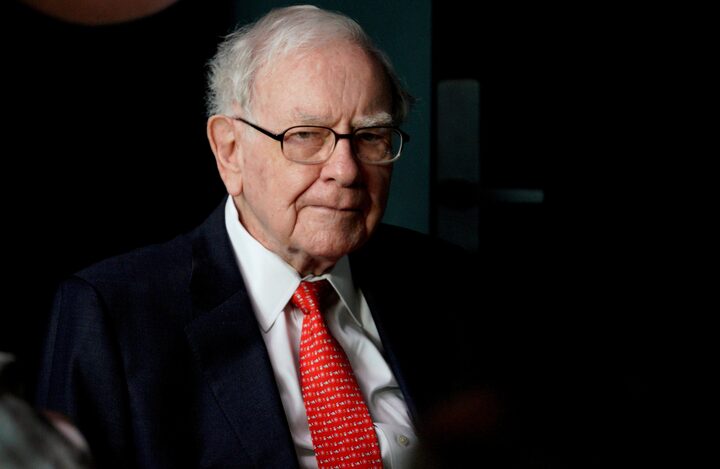Warren Buffett’s Berkshire Hathaway continues to reshape global investment dynamics by increasing its stakes in Japan’s powerhouse trading companies. The conglomerate now owns more than 10% in Mitsubishi and Mitsui, two of Japan’s largest sogo shosha, or general trading houses.
Recent filings from Mitsubishi Corp. revealed that Berkshire boosted its stake to 10.23% from 9.74%, while Mitsui & Co. confirmed similar increases. These moves propelled Berkshire into the position of Mitsui’s largest shareholder. Buffett’s Japanese exposure now exceeds $31 billion in market value, a staggering 392% jump from the $6.3 billion initial investment made in 2020.
From Modest Start to Market Domination
Berkshire began investing in these five firms — Itochu, Marubeni, Mitsubishi, Mitsui, and Sumitomo — in 2019, gradually building stakes of about 5% in each. The companies operate across diverse industries, ranging from energy, commodities, and logistics to finance and consumer goods.
Originally, Buffett agreed to keep ownership below 10% without board approval. However, as disclosed in his February 2025 annual letter, the trading houses later “moderately relaxed” this ceiling, allowing Berkshire’s holdings to cross the 10% threshold. Each firm consented to this move as a mark of trust and in recognition of Berkshire’s “steady hand and patient capital.”
Remarkable Gains from an Undervalued Opportunity
Buffett’s strategy was rooted in his signature value-investing philosophy. He was drawn to these companies for their reliable management, diverse operations, and low valuations during 2020, a time when Japanese shares were still considered underpriced.
Since then, shares in the five trading houses have rocketed between 227% and 551%, contributing nearly $10 billion in profits to Berkshire Hathaway. Analysts credit these gains to both Buffett’s buying momentum and the firms’ strong focus on corporate reform, improved governance, and shareholder-friendly policies such as dividend hikes and share repurchases.
The result? Japan’s trading houses have significantly outpaced the Tokyo Stock Exchange’s TOPIX index, becoming symbols of Japan’s corporate renaissance under Buffett’s global spotlight.
Strategic Financial Engineering: Warren Buffett’s Yen Advantage
Perhaps one of Buffett’s most sophisticated plays has been leveraging yen-denominated debt to finance these acquisitions. The move allows Berkshire to benefit from Japan’s prolonged period of ultra-low interest rates while generating substantial dividend income.
According to estimates, Berkshire earns around $812 million annually in dividends from these holdings while paying only $135 million in interest expenses, creating an efficient arbitrage between cheap borrowing and robust income streams. Additionally, favorable yen-to-dollar exchange rates have added billions in after-tax currency gains, cementing the deal’s profitability.
This financial strategy demonstrates how disciplined capital structuring can amplify long-term equity performance — a hallmark of Buffett’s mastery of conservative borrowing to fund high-quality assets.
Japan’s Governance and Buffett’s Endorsement
Buffett’s devotion to Japan is also tied to the country’s evolving corporate culture. Over the last decade, Japanese regulators and companies alike have embraced pro-investor reforms, improving transparency, dividend policies, and capital efficiency. These advancements made Japan fertile ground for Berkshire’s methodical approach.
The five sogo shosha — essentially Japanese equivalents of Berkshire itself — provide essential services in global trade, resource distribution, and industrial supply chains. Their diversified models shield them from commodity volatility, offering the resilience Buffett values most.
Market experts believe Berkshire’s involvement has elevated confidence among global institutional investors. As noted by SBI Securities analyst Ryunosuke Shibata, Buffett’s continuous buying acts as a “tailwind for all trading house stocks,” encouraging further international capital inflows into Japan.
A “Forever” Investment
True to his long-term ethos, Buffett has reiterated that his stake in Japan represents a decades-long, potentially permanent commitment. In his 2025 annual letter, he stated: “We won’t give a thought to selling those shares in the next 50 years or forever.” Berkshire Vice Chairman Greg Abel echoed his optimism, highlighting that Berkshire could expand collaboration with these companies across energy, infrastructure, and logistic ventures.
Buffett’s move to allocate billions overseas also underlines a strategic diversification away from U.S.-centric equity exposure, especially as American valuations reach record highs.
What Buffett’s Japan Play Signifies for Global Investors
Berkshire Hathaway’s bold expansion demonstrates that value-oriented opportunities still exist beyond the U.S. financial markets. Japan’s maturing governance landscape, coupled with consistent dividend yields and moderate valuations, offers a powerful case for global investors seeking sustainable long-term growth.
For Buffett, this strategy is not a speculative gamble but a precise alignment with his investing mantra: acquiring strong, well-managed businesses at fair prices and holding them indefinitely.
Conclusion
Warren Buffett’s $31 billion foray into Japan stands as one of the most successful international bets in Berkshire Hathaway’s storied history. What began as a low-profile diversification move in 2020 has evolved into a defining symbol of Japan’s corporate evolution and Buffett’s timeless investment acumen. By crossing the 10% ownership threshold and optimizing financing through yen-denominated bonds, Berkshire has blended value, vision, and patience into one of the 21st century’s most profitable global investment strategies.

